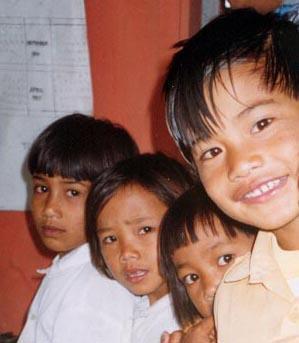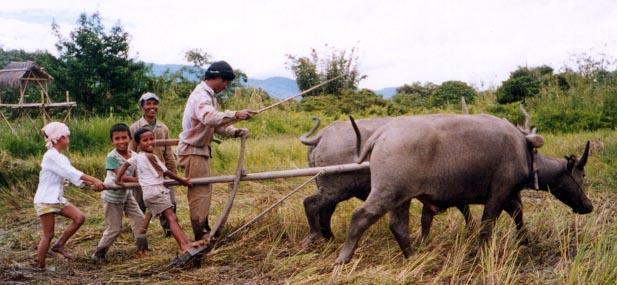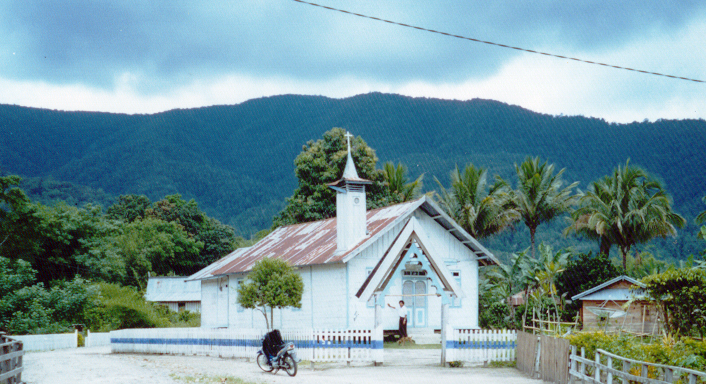The Behoa area consists of two large plains in the province of Central Sulawesi, Poso region, subdistrict Behoa. In that subdistrict, there are eight villages, three in the Kakau area (Rompo, Katu and Torire), and five villages in Ngamba (Doda, Bariri, Hanggira, Lempe, Baleura). Doda is the capital of the Behoa subdistrict. Behoa is known for its many megalith sites.
The climate in Behoa is not too hot because it lies at about eight hundred meters above sea level.
There are about twelve thousand people living in the Behoa area. There are others who have moved away and live in Palu, Poso, Manado, Jakarta, Irian Jaya and in other places.

Behoa is a beautiful place. Its land is broad and fertile, which is why many Behoa people are rice farmers. There are also some who have gardens, and they produce things such as corn, chocolate, tomatoes, chilli, squash, and other plants.

Before the Behoa knew God, most of them were animists. But more than a hundred years ago, a Dutch missionary called Weseldik came with Manadoese missionaries. They brought the Gospel, the Good News about Jesus who redeems us from our sin. After a while, the Behoa left their animistic spirits, and the last animist was baptised in 1956. They said that when he was baptised, his beard was already white. Now every Behoa village has a church, mostly the Protestant Church of Central Sulawesi (GKST). There are also Pentecostal and Catholic churches in the area.

The Behoa still practice their own culture, for example, their culture for marriages, greeting someone important, what to do when someone gives birth, when someone dies. There are also several cultural matters which are no longer followed because they stemmed from former animist beliefs, for example, what to do when planting corn.
It is clear that until now, unity among the Behoa is still strong. For example, if someone has died, or is getting married, everyone helps cook, gather firewood, put up an awning, etc. They also live in harmony with people who live in their area who are not Behoa.
We want to thank the Lord who has graciously given this land which is beautiful and fertile to the Behoa to live in. And now the Behoa have received a huge blessing from the Lord, because they can read, listen to, and watch God’s Word in their own language.